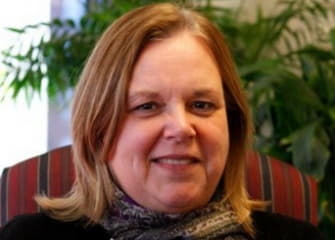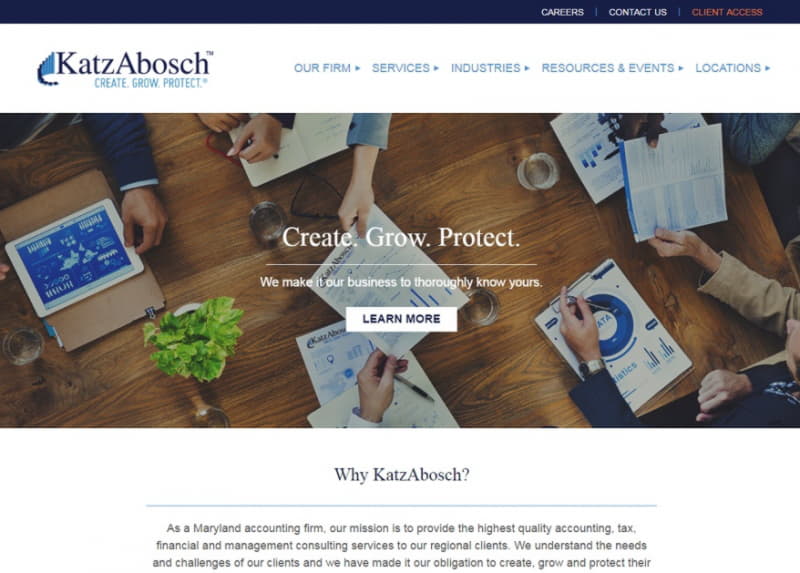
Mary Harlee
Click here for Part I & Part III
Mary B. Harlee runs what may be Baltimore’s oldest financial services company and the city’s best kept secret – Baltimore Equitable Insurance.
Founded in 1794 as the Baltimore Equitable Societyfor Insuring Houses from Loss by Fire, the company specializes in writing homeowner’s insurance. This past February, it celebrated its 223rd year in business surviving yellow fever scares, the bombing of Fort McHenry, the Civil War, the Great Baltimore Fire of 1904, the Great Depression, two world wars and Hurricane Isabel.
“We have learned from our past and our past is our future,” says Harlee, who was named president and CEO in 2014, the second women to head the company since it was founded. “We take that model that our forbearers have given us and we have learned from them what makes a great company.”
Baltimore Equitable has thrived in a special niche in the insurance business. It is the only insurance company in the country that writes“perpetual” insurance, a homeowner’s policy that ends only when the policy is cancelled. Traditional insurers charge a premium, say $1,000 a year, to maintain insurance. But Baltimore Equitable requires customers to pay a lump sum, up front deposit. A $250,000 home would require about a$10,000 deposit, or $40 per $1,000 of house. That can be a tough sell, but there are no monthly payments and when the policy is cancelled because a holder moves or sells their house, they are paid back the entire amount of the deposit.
“In the long run, it is a better deal,” Harlee says.
Harlee, who began working at the company in 1983 after she graduated from college, credits her team – there are 13 employees – and a star-studded board of directors for continuing to build Baltimore Equitable’s fortress balance sheet. A.M. Best Co., an insurance company ratings agency, gives Baltimore Equitable an “A” rating.
Baltimore Equitable’s board is made up of the “pillars of society,” Harlee says. Members include Richard O. Berndt, managing partner of Gallagher, Evelius & Jones; Freeman A. Hrabowski III, president of University of Maryland, Baltimore County; Marjorie Rodgers Cheshire, president and chief operating officer of A&R Development Corp., and John D. Linehan, vice president at T. Rowe Price Associates, Inc.
As of Dec. 31, 2016, the company had $50 million in policyholder deposits, but a total of $150 million in investable assets. This means that if every customer cancelled their policy, Baltimore Equitable could easily pay them back with $100 million to spare.
Harlee has no grand ambition of creating a huge insurance company, she wants to replace policyholders who are either moving or dying off. Twenty percent of the company’s policyholders have been customers for 25 years. But she does envision executives blowing out candles in the year 2294 when Baltimore Equitable would celebrate its 500th birthday.
“We don’t want to be bought up by any other company. We don’t want to be merged with any other company,” Harlee says. “On the contrary, we want to stay a perpetual mutual insurance company for as long as we have members.”
EDWIN WARFIELD: Why do you think Baltimore Equitable Insurance has been able to stay in business since the 18th century?
MARY HARLEE: Our company has been in business for 223 years and has basically used the same model [the whole time]. We are non-assessable mutual insurance company, and we write perpetual deposits. No other insurance company in the United States writes perpetual insurance anymore and has the deposit feature.
How did we stay in business so long? Our balance sheet has been a testament of our conservative investments that we’ve used. We have an unbelievable investment committee who are pillars in their field and have their pulse right on the investment world. They’re people that you know from the investment world. They actually have their pulse on all the investments and they’ve built a fortress of a balance sheet, and that fortress of a balance sheet is there to be able to pay off our policyholders’ deposits.
Our policyholder deposits are actually liabilities for us, because we owe all that money back to our insureds, and so we have to be able to give that 100% of those deposits back on demand. As of December 31st, we had about $15 million in perpetual homeowners’ deposits and we had about a $156 million in invested assets. As you can see, we would have about a $100 million leftover if we had to pay off all those deposits.
Q. How did your balance sheet get that strong?
A. Our balance sheet didn’t get strong overnight. We have been in business for so long, and that it’s been slow growth over 223 years. There were, of course, many bumps in the road—and 1929, 2008, and 2009 are just a few of the bumps that we’ve hit—but because of our conservative nature we have been able to rebound a lot more quickly than some other companies might have been able to. We’re rated just like any other insurance company. A.M. Best does the ratings for us, and we currently have an A with a “stable outlook” rating, which for a small insurance company is remarkable.
I think our balance sheet is a reflection of our 223 years of history, and the people that we’ve had as board of directors are just an unbelievable group of people that have always been pillars of society, and have been businessmen in their own right and running their own companies and have taken that oversight and insight to our company to make it the best that it possibly can be. Our board of directors has stayed true to their beliefs and the decision not to veer off in times of problems has what has given our balance sheet its strength. Many other insurance companies may have said, “we need to write auto insurance,” and we have stayed true to be a homeowners’ insurance company that writes perpetual insurance.
Q. What are some challenges you face?
A. One of the biggest challenges that we face is the deposit money that our insureds have to come up with upfront. Traditional insurance companies—you may only have to come up with a $1,000 and then you have coverage for the year, and here I am asking you for $10,000. That’s a lot of money, and not everybody has $10,000 saved. It might make sense financially for you to do this—It might make sense from a business perspective—“I could save money by giving them my $10,000 and then getting it all back at the end, but I just don’t have the $10,000.” And this is when we say, “It’s all right to say no. You can say no now, but ‘no’ doesn’t mean forever, and that you may need a policy later on, you might have the $10,000 saved later on, and we would more than welcome you as a policyholder.”
In the long run, it definitely is a better deal. I mean, if you can do it earlier, it’s kind of like your 401k savings—the earlier you do it, the more savings that you accrue by doing it earlier. Every time you put a $1,000 down to your traditional insurance company, that money is lost. You don’t get that money back at all; whereas, with us, you’re always going to get the whole amount of money back from us—the whole $10,000.
Q. Besides the business model, how does your company stand out in the insurance market?
A. What I really think that makes a difference in this type of our business is the customer service you receive from us. We pride ourselves on customer service. When you call our office during the normal business hours you don’t have to push a bunch of buttons before you can even talk to someone. You talk to a live person and then that live person connects you with your individual customer service representative who can talk to you, who knows your policy, who’s been talking to you over the years and knows what your insurance needs are, so you have some continuity. Our average employee has been here with us for over ten years. If a customer can’t get the answer from them—maybe they might be out sick that day—they can always call me.
As President, I am accessible to everyone of our policyholders. If they have a question, I am available. I’ll even come out to their house. I had this lady [who has been a customer with us since] 1968 who wanted me to come out to her house and not just talk about her insurance needs, and I was more than happy to do that for somebody that has been with us that long. Our sales representatives actually go out to your house and do an inspection on your home so that they can determine what the replacement cost value is of your home.
When you bought your home, you might have said, “okay, I bought my home for $200,000,” and you called up your insurance company and said, “Hi, this is Mr. Smith, I need $200,000 on my coverage on your home,” and the insurance company said, “sure, I’ll write it for you,” and they did, and your mortgage company was happy because you have the coverage—but what you just did is write your coverage based on your market value of your home. Now, market value and replacement costs are two different things, and in the insurance world, you actually need replacement cost on your home—in case something disastrous happens to your home, you have enough coverage. We are out there educating prospective policyholders that this is what they need on their home to protect the most valuable asset.
Connect with Mary on LinkedIn
Sponsored by:
Founded in 1969, KatzAbosch is one of the largest CPA and business consulting services in the Mid-Atlantic region. Our mission is to provide the highest quality accounting, tax, financial and management consulting services to our clients. We understand the needs and challenges of our clients and we have made it our obligation to create, grow and protect asset value. The experts at KatzAbosch offer a full service solution while maintaining a tradition of ethics and incorporating the latest technology and unique business practices. Excellence in an industry often begins with how those closest to the company—its clients and employees—feel about it. For these individuals, KatzAbosch is a place where people and businesses excel and prosper. Our advisors can meet all of your service needs including; Audit & Accounting, Business Valuation & Litigation Support, Consulting, Estate Planning & Administration, Financial Institution Services, Forensic Accounting & Fraud Examinations, State and Local Tax (SALT), Taxes & Planning.


Edwin Warfield, CEO of citybizlist, conducts the CEO Interviews.
If you're interested in reaching CEOs, please contact edwin.warfield@citybuzz.co
Connect on LinkedIn




































